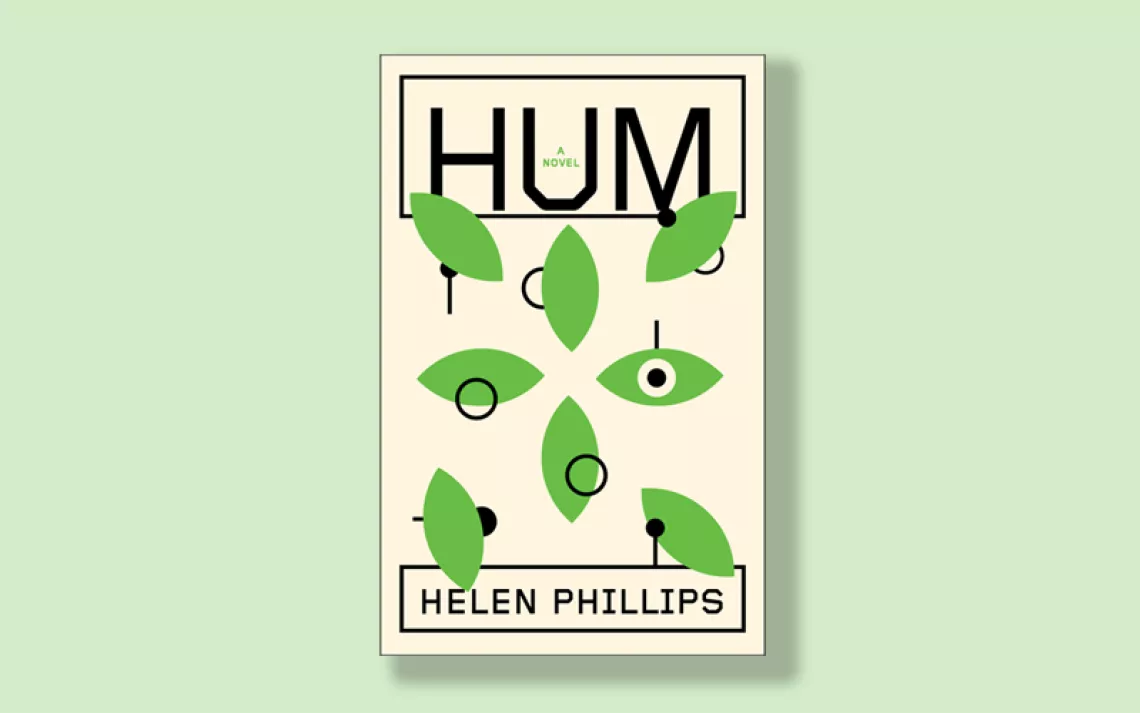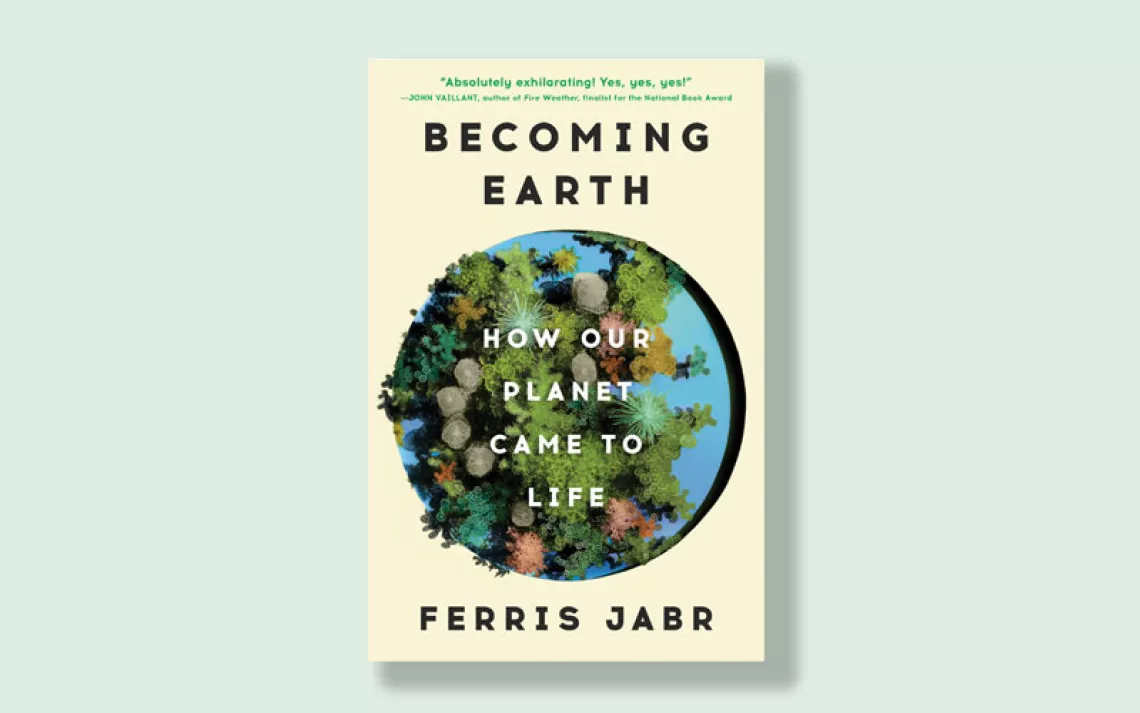Katherine May’s Call to Rediscover “Enchantment”
A new book explores the work of everyday wonder

Each year the Lyrid meteor shower appears at the end of April, as the Earth passes into the orbit of comet C/1861 G1 (Thatcher), burning up the debris it leaves behind. Its radiant is next to the constellation of Lyra, the lyre of Orpheus, placed in the sky by an eagle on Zeus’s command. Because Thatcher has a relatively short orbital period, returning every 415 years, the meteor is particularly bright and fast, and has the reputation among starwatchers of putting on a good display.
I have never once seen it. Have you? There are 12 regular meteor showers reliably happening above our heads each year, and yet few of us ever make the effort to watch. I know, I know: it’s hard. They happen late at night, and when it’s dark and cold, and we live surrounded by light pollution and can barely see the sky at all. And there are clouds and rainstorms, and there’s work in the morning. But still: meteors. Shooting stars. Those streaks of light we find so magical that we invest them with our wishes. Surely that’s a sight worthy of effort?
In medieval philosophy, the earth was made of four elements—earth, water, fire, and air—but the vast universe beyond it was composed of a different substance entirely. This was aether, a particularly refined material that transcended the states we recognize. Known as the quintessence, it was neither hot nor cold, neither wet nor dry, and was capable of changing its density. It was the stuff from which stars were made, and light, and gravity. It tended naturally towards circular motion and so set the orbits of the planets.
Did the sky lose a little of its magic when we came to understand that celestial bodies are made of exactly the same molecules that we find on earth? Perhaps. But then the night sky has now become rare in a different way, fading from view beyond the electric glow of modern life. On a clear night, so long as the people in the house that backs on to ours have not turned on their security light, the stars are bright and multitudinous. If the security light is on, all bets are off. You can barely see the rest of the garden, let alone the firmament. But even without this, it’s hard to escape the seep of streetlamps and the bright displays of local shops that cause enough light pollution to obscure the night sky, leaving only the largest stars visible. Our love of electric light is leaching some of the wonder from the world. If I want to see a meteor storm—and I do—then I’ll need to travel.
The UK has a handful of Dark Sky Reserves, where lighting is controlled to protect dark spaces. This includes the islands of Coll and Sark, where whole communities have agreed to forgo outside lighting in favor of basking in the full glow of the Milky Way. But traveling in constrained times, I had to suppress my desire to go to the farthest reaches of the British Isles in search of perfect darkness. Instead, I chose the 300-mile drive to Exmoor, which I knew would also soothe my heartfelt longing for my favorite coastline.

Embarking on a 10-hour round trip to see some meteors really brings home our attitude towards enchanting things. When I tell people what I’m doing, they say, “Wow, can you do that?” and then, also, “Why are you bothering?” The time between those two responses is usually infinitesimally small. We are awed in principle by what is out there, but we prefer to keep that awe theoretical unless it drops into our laps.
Meteors sit perfectly on the cusp of the mundane and the rare. They are there, but only if we seek them out. We know that if we encounter them, it will be a remarkable experience, perhaps even one we will remember for years to come. But because of that very ordinariness, we defer going out to look for them. After all, no one else is doing it. It’s not an event, like a solar eclipse. We would feel silly for making a fuss about it. It would be a childish thing, and we are adults. We don’t concern ourselves with shooting stars. I think I’m beginning to understand that the quest is the point.
Our sense of enchantment is not triggered only by grand things; the sublime is not hiding in distant landscapes. The awe-inspiring, the numinous, is all around us, all the time. It is transformed by our deliberate attention. It becomes valuable when we value it. It becomes meaningful when we invest it with meaning. The magic is of our own conjuring.
The awe-inspiring, the numinous, is all around us, all the time. It is transformed by our deliberate attention. It becomes valuable when we value it.
Hierophany—that revelation of the sacred—is something that we bring to everyday things, rather than something that is given to us. That quality of experience that reveals to us the workings of the world, that comforts and fascinates us, that ushers us towards a greater understanding of the business of being human: it is not in itself rare. What is rare is our will to pursue it. If we wait passively to become enchanted, we could wait a long time.
But seeking is a kind of work. I don’t mean heading off on wild road trips just to see the stars that are shining above your own roof. I mean committing to a lifetime of engagement: to noticing the world around you, to actively looking for small distillations of beauty, to making time to contemplate and reflect. To learning the names of the plants and places that surround you, or training your mind in the rich pathways of the metaphorical. To finding a way to express your interconnectedness with the rest of humanity. To putting your feet on the ground, every now and then, and feeling the tingle of life that the earth offers in return. It’s all there, waiting for our attention. Take off your shoes, because you are always on holy ground.
It is already two days past the peak of the Lyrids when we head out into the night to find them. Bert takes an early bath, and we put him in the car dressed in pajamas and a hoodie, ready to crawl straight into bed when we get back. He’s now past the age when I could carry his sleeping form out of the car, and I miss it even as we’re making plans. With the sun low in the sky, we drive out of the town where we’ve rented a house and into the wilds of Exmoor, roads narrowing and acres of wild scrubland stretching out before us. The greener fields are full of ewes and their lambs, and in some places they fill the roadside verges, too, chewing on the grass and shedding their wool all over the prickly gorse. A few of the sturdier lambs try their luck against the car, holding their ground in the middle of the road as we crawl towards them and then bounding off in a clatter of ungainly legs at the last moment.
The drive takes us so high that our ears pop, and we share a packet of Polo mints to regain our equilibrium. When I booked this trip, I didn’t count on a supermoon. Rising already in the sky, the moon is within 90 percent of her perigee, the astronomical term for the point in her orbit that’s closest to the earth. This means that she will be unusually bright tonight. I am hoping that this will not be fatal to my meteor viewing prospects, drowning out the paler light of the stars. She is gibbous, though—a “hump-back” moon, not quite yet full. In just a couple of days she will be the milk moon, opening the Anglo-Saxon month of þrimilcemōnaþ, the month of three milkings. This is the beginning of summer, when the eighth-century monk Bede noted that our ancestors milked their cows three times a day, a season of fecundity and relief from the wastes of winter. That sense of liberation is still tangible for us now.
Freed from the dark months that have kept us indoors, we can now strive out into the night in search of wonder. We feel it all the more keenly after a year of staying home. We park at Holdstone Down and walk uphill along a stony path as the sky darkens. Above my head, the aether is a thin blue, streaking orange towards the horizon. As we reach the crest, the land falls away before us, giving way to a restless grey sea and a ladder of cliffs fading into the distance.
Bert is entranced by the cairn that sits at the peak of the hill, the first one he’s seen. He’s got lucky. Most of the cairns I’ve ever come across have been at the summit of a long climb or in a spot so remote that walkers have felt compelled to mark the occasion of their passing-through. We had to walk for only five minutes. The pile of stones is as tall I am, and probably 15 feet in diameter. At the very top, someone has arranged a miniature stack of three stones, forming an arch through which I can glimpse a segment of the sky.
Cairns are spontaneous, shifting monuments to a hundred different things. A bunch of browning flowers is secured under one of the stones, facing seaward. I show Bert that he can add a stone of his own, and he does, and then adds one for every member of his family: for me, for daddy, for grandma, for the cats and for the dog—all the beings he treasures. And just like that, he makes his own ritual, an act of invention and a gesture of connection. He doesn’t need to be shown this. He knows already. What he needs, as he grows older, is continuing permission to map meaning across the landscape.

Later, when I look up cairns on the internet, I find a glut of annoyed comments that they pile over ancient monuments or contravene the ethic of “leave no trace”—that they are yet another way in which humans impose their unwanted presence on the wild. I think that speaks more about our disenchantment than it does about our destruction. Stones added to ancient sites of ritual suggest to me that there’s a continuity of practice at play, a river of meaning that has flowed through the centuries. Leaving a trace is not necessarily the same as doing harm, especially when it merely involves the shifting of stones from one place to another. Making these connections will surely usher us into more careful stewardship of the land on which we walk.
It is time to reject these false breaks between ancient irrational humanity, whose beliefs we would commit to distant history, and the modern subject, bereft of meaning; between the idea of pure nature and the unruly people who pass through it. We don’t destroy colonial attitudes about the landscape by erasing people from it altogether, and forbidding their ever-morphing acts of meaning-making. We don’t preserve our natural landscapes by turning them into a museum. We heal these rifts by inviting back gentleness into our relationship with the earth, by allowing meaning to take hold again. We should encourage enchantment to bolt like a weed. It is, after all, native here. The stones, and the dried-out heather, and the sound of the sea, and the moon above our heads have all been storing it like a battery, waiting for its current to be found again.
We don’t preserve our natural landscapes by turning them into a museum. We heal these rifts by inviting back gentleness into our relationship with the earth, by allowing meaning to take hold again.
The wind has picked up and the sky still isn’t dark, so we pad back down the path to the car. There are no stars yet, and the moon is now high and invasively bright. H remembers a lay-by a little farther along the road where he thinks we’ll have a better view of Lyra. According to an app on my phone, the constellation is now rising to the northeast, still low in the sky. We drive a little way and park again. Turning off all the lights, we watch the sky darken through the windows, and we see the first stars come out. Bert has never had the chance to watch the first specks of light appear and then to notice the paler stars gradually become visible all around them.
I can never tell whether this happens because the sky is getting incrementally blacker or whether you just get your eye in. Probably a little of both. Either way, he’s so excited by it that he’s chattering and fidgeting in the back seat, rattling my seat. It’s way past his bedtime already, and I can see that he won’t last a lot longer. I’m craving silence, the chance to feel my way into this moment, but it’s not possible. We get out, wrap up warm, and perch on the car’s bonnet to look across the sea. It is still not dark enough for Lyra to be visible. There’s a pale band just above the horizon, and across the water, the lights of Swansea are twinkling. A little way along the coast, I can see the regular pulse of the lighthouse at Foreland Point.
There is too much light. There is not enough darkness. Meanwhile, the moon is a menace, shining so fervently that a veil is cast across the whole sky. It is cold, and the wind is in my ears, and I’ve come all this way for absolutely nothing, for an invisible starfall. And then I notice it, pooling at our feet. I say to H, “You’ve left the headlights on. No wonder we can’t see anything.” But as he shifts to find his keys, I realize that the lights are not on. So where do they come from, the shadows that flow down the cliff from our shoes? It takes me a few beats to realize that it must be the moon. “Look!” I say to Bert. “Our moon shadow!”
We are, collectively, a little bit amazed, and we step left and right, and raise our arms to prove it’s really true. H and I both break into song, though I choose Cat Stevens and he opts for Mike Oldfield, and there is momentary confusion as our voices clash. But then we watch quietly.
Night is already a shadow cast on the side of the Earth that has turned away from the sun. This is a shadow within a shadow, a fragile thing made by moonlight. I can’t remember ever seeing mine before. Perhaps I have and I haven’t noticed. Perhaps I’ve never found the right darkness before. Perhaps I wasn’t ready for it to unpack its meaning as it does for me here and now. I have gone looking for one thing and found another, not something rare and celestial and beyond my control, but something that was always within my power to find. The act of seeking attuned my senses and primed my mind to make associations. I was open to magic, and I found some, although not the magic I was looking for.
That’s what you find over and over again when you go looking: something else. An insight that surprises you. A connection that you would never have made. A new perspective.
More often than not, I find that I already hold all the ideas from which my enchantment is made. The deliberate pursuit of attention, ritual, or reflection does not mystically draw in anything external to me. Instead, it creates experiences that rearrange what I know to find the insights I need today. This is how symbolic thought works. It offers you a repository of understanding that can be triggered by the everyday, and which comes in a format that goes straight to the bloodstream. I don’t have words to describe what it meant to play with my moon shadow. Instead, I feel it in my body, a kind of physical wonder at what is there waiting for me when I stop to notice.
I don’t have words to describe what it meant to play with my moon shadow. Instead, I feel it in my body, a kind of physical wonder at what is there waiting for me when I stop to notice.
Do I detect a divine sense of humor behind this world that allows me to drive for five hours to be enthralled by something I could find in my own backyard? Or it is my own amusement reflected back at me, as I am taught something I already know, but which apparently bears repeating. I don’t think it matters. In fact I think I prefer a strange tangle of both, an idea with porous boundaries that keeps me guessing. We are not offered any definite conclusions, only the continuing quest. Certainties harden us, and eventually we come to defend them as if the world can’t contain a multiplicity of views. We are better off staying soft. It gives us room to grow and absorb, to make space for all the other glorious notions that will keep coming at us across a lifetime.
Bert gets back into the car, and I know I don’t have long here now. If he falls asleep on the drive home, I’ll have to wake him up again before I put him to bed, and I know how miserable that feels. I squint out at the horizon and the stars seem to double with my efforts. I can see the slant square of Lyra clearly now, and below it the last dregs of daylight still lightening the far edge of the sea this long after sunset. There is a boat bobbing out there, its light moving rhythmically with the swell. In my peripheral vision, I think I see a streak of white light, barely discernible, fleeting. My eyes flick back to the part of the sky where it appeared, but there is nothing there.
Did I see a shooting star, or was it the desperate imaginings of tired eyes? It doesn’t matter either way. I get to choose what I make of it. This is exactly where I want to be: watching the skies for a glimpse of starfall.
 The Magazine of The Sierra Club
The Magazine of The Sierra Club



